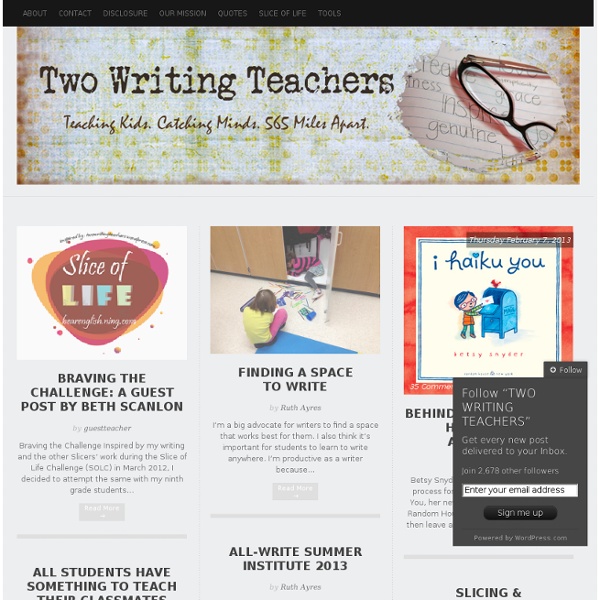



Too Many High-Sounding Words chartchums | Creative Classroom Charts Your Smarticles A Year of Reading The Reading Zone Reading with Bean | Literacy & Life Chapter Books for the New Chapter Book Reader I was talking with a friend the other day and she was asking me for chapter books for her first grade twins. Read more… Boys and Reading Boys and reading…ahhhhh…where to begin? Bean’s Choice Awards: Engaging Books for 1 – 3 Year Olds Bean just turned one. Dessert Books. I was going through a student’s independent reading bag the other day. Checking In. We all know children that check in. Taking a Picture Walk A favorite part of my day is when I get to take a picture walk with my students. Poetry: For Every Day “My child doesn’t like to read.” Non-Fiction Love When I was little I was a great reader. The Story Savior When I was teaching third grade my students used to eat lunch in the classroom. Read more… Beating the Monsters When I was little I swore something lived under my bed. A Unique Audience I have said this a hundred times. Resolutions…Goals… A How-To for 2014. Vintage Books. I have a thing for vintage. Book-It to the Store!
PortablePD.ca Reading with Bean | Literacy & Life How to Teach a Novel A Year of Preschool Books & Activities As a teacher and a mom, the real new year starts for me in September when the kids head back to school. In honor of the new school year, I've gathered some of my favorite preschool book and activity ideas for each month of the year. Each month focuses on a specific theme, so you can mix and match the books and extension activities. September is the perfect time to read about and explore the changing colors of the leaves in Fall. Tree-themed books for preschoolers:Let It Fall by Mariann Cocca-LefflerLeaves by David Ezra SteinRed Leaf, Yellow Leaf by Lois EhlertFall Leaves Fall by Zoe Hall Fletcher and the Falling Leaves by Julia RawlinsonThe Seasons of Arnold's Apple Tree by Gail Gibbons Tree-themed activities for preschoolers:Fall handprint treesAutumn trees with real leaves from Housing a ForestLeaf cutouts and tissue paper tree from Rockabye ButterflyFall popcorn trees from Happy Hooligans 12 ways to use leaves Of course, there's plenty of fun turkey books and crafts for November. Mr.
CyberEnglish Free Technology for Teachers